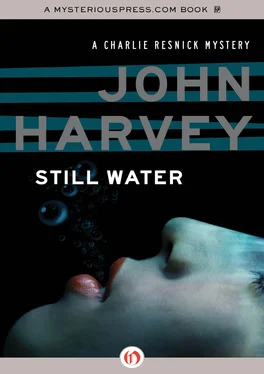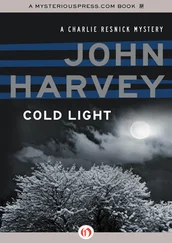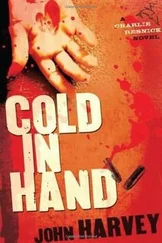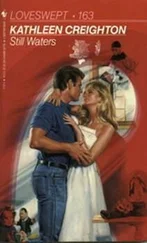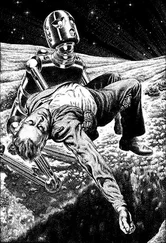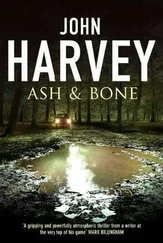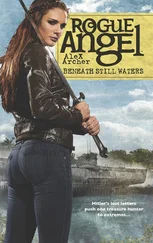John Harvey - Still Waters
Здесь есть возможность читать онлайн «John Harvey - Still Waters» весь текст электронной книги совершенно бесплатно (целиком полную версию без сокращений). В некоторых случаях можно слушать аудио, скачать через торрент в формате fb2 и присутствует краткое содержание. Год выпуска: 1997, ISBN: 1997, Издательство: Henry Holt & Co, Жанр: Полицейский детектив, на английском языке. Описание произведения, (предисловие) а так же отзывы посетителей доступны на портале библиотеки ЛибКат.
- Название:Still Waters
- Автор:
- Издательство:Henry Holt & Co
- Жанр:
- Год:1997
- ISBN:9780805041491
- Рейтинг книги:3 / 5. Голосов: 1
-
Избранное:Добавить в избранное
- Отзывы:
-
Ваша оценка:
- 60
- 1
- 2
- 3
- 4
- 5
Still Waters: краткое содержание, описание и аннотация
Предлагаем к чтению аннотацию, описание, краткое содержание или предисловие (зависит от того, что написал сам автор книги «Still Waters»). Если вы не нашли необходимую информацию о книге — напишите в комментариях, мы постараемся отыскать её.
Still Waters — читать онлайн бесплатно полную книгу (весь текст) целиком
Ниже представлен текст книги, разбитый по страницам. Система сохранения места последней прочитанной страницы, позволяет с удобством читать онлайн бесплатно книгу «Still Waters», без необходимости каждый раз заново искать на чём Вы остановились. Поставьте закладку, и сможете в любой момент перейти на страницу, на которой закончили чтение.
Интервал:
Закладка:
John Harvey
Still Waters
One
It was the night Milt Jackson came to town: Milt Jackson, who for more than twenty years had been a member of one of the most famous jazz groups in the world, the Modern Jazz Quartet; who had gone into the studio on Christmas Eve, 1954, and along with Miles Davis and Thelonious Monk, recorded one of Resnick’s all-time favorite pieces, “Bag’s Groove” the same Milt Jackson who was standing now behind his vibraphone on the stage of the Broadway Media Centre’s Cinema Two, brought there with his new quartet as part of the Centre’s Film and Jazz Festival; Milt, handsome and dapper in his dark gray suit, black handkerchief poking folded from its breast pocket, floral tie, wedding ring broad on his finger and catching the light as he reaches down for the yellow mallets resting across his instrument; Milton “Bags” Jackson, born Detroit, Michigan on New Year’s Day, 1923, and looking nothing like his seventy-three years, turning now to nod at the young piano player-relatively young-and the crowd that is packed into the auditorium, Resnick among them, holds its breath, and as Jackson raises a mallet shoulder high to strike the first note, the bleeper attached to the inside pocket of Resnick’s jacket intrudes its own insistent sound.
And there is a moment, Resnick bulkily rising from his seat near the center of row four and fumbling inside his coat as he excuses himself, embarrassed, past people’s knees, in which Jackson, expression shifting between annoyance and amusement, catches Resnick’s eye and grins.
Out in the foyer, Resnick hurried to the ticket desk and asked to use the phone. Jack Skelton’s voice was clipped and sharp: the body had been discovered less than twenty minutes earlier, trapped beneath the lock gates of the canal, just where it flows into the Trent. Resnick’s sergeant was already on his way there, along with three of the team. Resnick glanced at his watch and estimated how long it would take to drive through the city, heading west.
“Shall I send a car for you, Charlie?” the superintendent asked.
“No, it’ll be all right. No need.”
He had driven to the theater that night with Hannah, or rather, she had driven him, preferring to wait for him in the Café Bar. Jazz she could tolerate, but not for hours on end.
Resnick picked her out immediately, sitting at a table close to the back wall with Mollie Hansen, Broadway’s head of marketing. Hannah with her hair just short of shoulder length, brown shading gently into red, a man’s dress shirt, not Resnick’s, worn loose over a deep blue T-shirt, blue jeans. Wearing black beside her, Mollie seemed slighter, younger, though the difference between them was no more than a few years; Mollie’s hair was shorter, her face sharper, pale skinned, bright eyed.
“Not over already?” Mollie said with a grin.
Resnick shook his head. “Something’s come up.” He tried not to notice the concern cross Hannah’s face.
“Work?” she asked and Resnick nodded. She took her car keys from her bag and dropped them into his hand.
“Shame about the concert,” she said.
Resnick nodded again, distracted, anxious to be away.
The air was hazy and humid, warm for June, and even with the windows of Hannah’s Beetle wound down, Resnick could feel his shirt beginning to stick beneath his arms and along his back. The streets seemed to grow narrower, the houses smaller the closer he came; there was the scent of something sweet and sickly like honeysuckle and though it was still light, the moon hung in the sky, almost full, its reflection misted in the still water of the canal.
An ambulance was parked near the intersection of Canal Side and Riverside Road; several police vehicles were pulled back alongside the recreation ground that led to the lock. Resnick left the VW behind these and walked to where Millington was standing on the narrow lock bridge, talking to a sergeant from the river police. Lynn Kellogg was on the towpath, notebook in hand, questioning a youth in a baseball cap and a girl in a skimpy top and skirt who could have been no more than fourteen. He saw Naylor crouching down by the far lock gate, something stretched along the gravel beside him, covered in a plastic sheet. Carl Vincent was perhaps a dozen yards away, chatting to a pair of paramedics. There were people standing curious at windows and in open doorways, clustering in twos and threes at the pavement’s edge.
As he approached the bridge, Resnick could hear clearly the roar of river water as it tumbled over the weir beyond the lock.
“Graham.”
Millington nodded a response to the greeting. “You know Phil Given, river police? Charlie Resnick, my DI.”
“I think I’ve bumped into you, County ground,” Given said, “season or so back.”
“Likely.” Resnick was looking beyond them, down toward the water. “What do we know?”
“Couple of kids found her,” Given said, “half-seven, thereabouts …”
“That’s them,” Millington interrupted, “talking to Lynn now.”
“Must’ve floated down to the gate here and got wedged somehow against the support of the bridge. Trapped by her arm.” Given pointed below them in the direction of the bank. “Above the water line, look, you can just see the marks.”
“Any idea how long she’d been there?” Resnick asked.
Given shook his head. “Couple of hours. Maybe more.”
Resnick nodded. “Doctor not here yet?”
Millington finished lighting a cigarette. “Parkinson. On his way.”
“I don’t suppose we’ve any idea who she is?”
Millington shook his head.
Resnick left them standing there and walked to where Lynn Kellogg was still talking to the kids who’d reported the body. He listened for a few moments, not interfering, moving on to where Naylor was still standing guard, the young DC’ s face yellow and strained. Some came to think little more of a corpse than roadkill; for others it was new every time.
“You could have a word with some of that lot standing round gawking,” Resnick said. “Get Carl to give you a hand. One of them might have seen something, you never know.”
Resnick lowered himself onto one knee and folded back the sheet: the face had lost much of its definition, the skin was puckered fast in some places, loose in others as an ill-fitting glove. There were marks-what might have been tiny bite marks-around the sockets of the eyes. High on the right temple, a gash opened, raw and washed deep into the bone. After or before, Resnick wondered, straightening? After or before?
“At least it’s not four in the morning, Charlie,” said a voice from behind him. “You’ll be grateful for that.”
“Maybe,” Resnick said, lowering the plastic carefully into place. “And maybe not.” He imagined the impeccable flow of notes from Jackson’s vibraphone, their rise and fall stretching out across the becalmed evening air.
Parkinson smiled benevolently over his half-moon spectacles and unfastened the center button of his suit. “Bridge, that’s what this saved me from. Going two off in four clubs, what’s more. Four clubs, idiotic call.”
“I dare say,” said Resnick, for whom card games were as enticing as Gilbert and Sullivan or a quick game of croquet.
“Time and cause,” Parkinson said, “I’ll do what I can. But don’t hold your hopes. Not yet awhile.”
There was enough water in the lungs for death to have been caused by drowning, though the blow to the head was severe and would have caused considerable trauma and loss of blood. A contributory factor, then, though whether the blow had been administered before or soon after the body had been introduced into the water, remained unclear. As for the exact nature of the instrument which had delivered the blow-something heavy, probably metallic, sharp but not pointed and traveling, at the moment that it met the head of the deceased, with considerable speed, propelled with considerable force.
Читать дальшеИнтервал:
Закладка:
Похожие книги на «Still Waters»
Представляем Вашему вниманию похожие книги на «Still Waters» списком для выбора. Мы отобрали схожую по названию и смыслу литературу в надежде предоставить читателям больше вариантов отыскать новые, интересные, ещё непрочитанные произведения.
Обсуждение, отзывы о книге «Still Waters» и просто собственные мнения читателей. Оставьте ваши комментарии, напишите, что Вы думаете о произведении, его смысле или главных героях. Укажите что конкретно понравилось, а что нет, и почему Вы так считаете.
